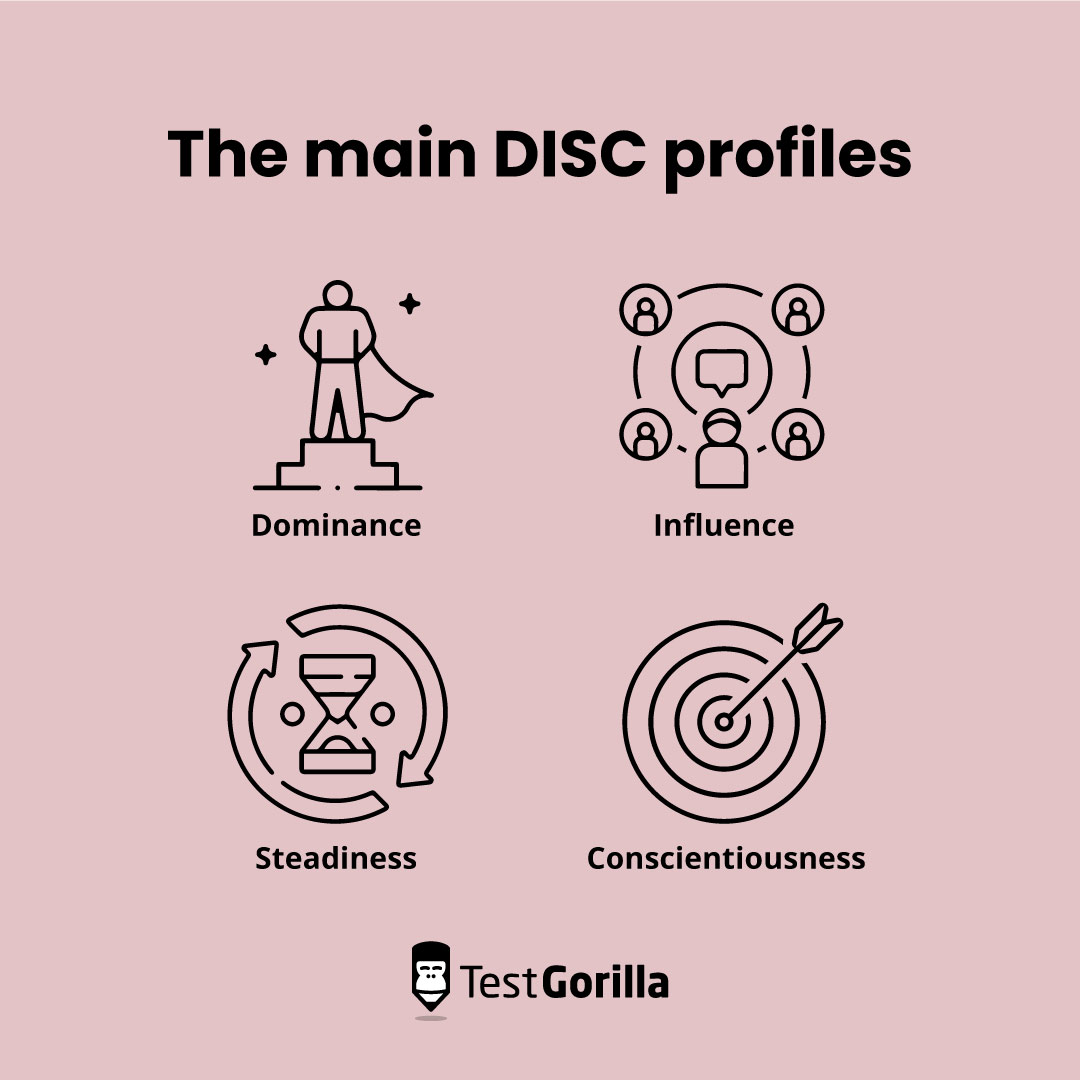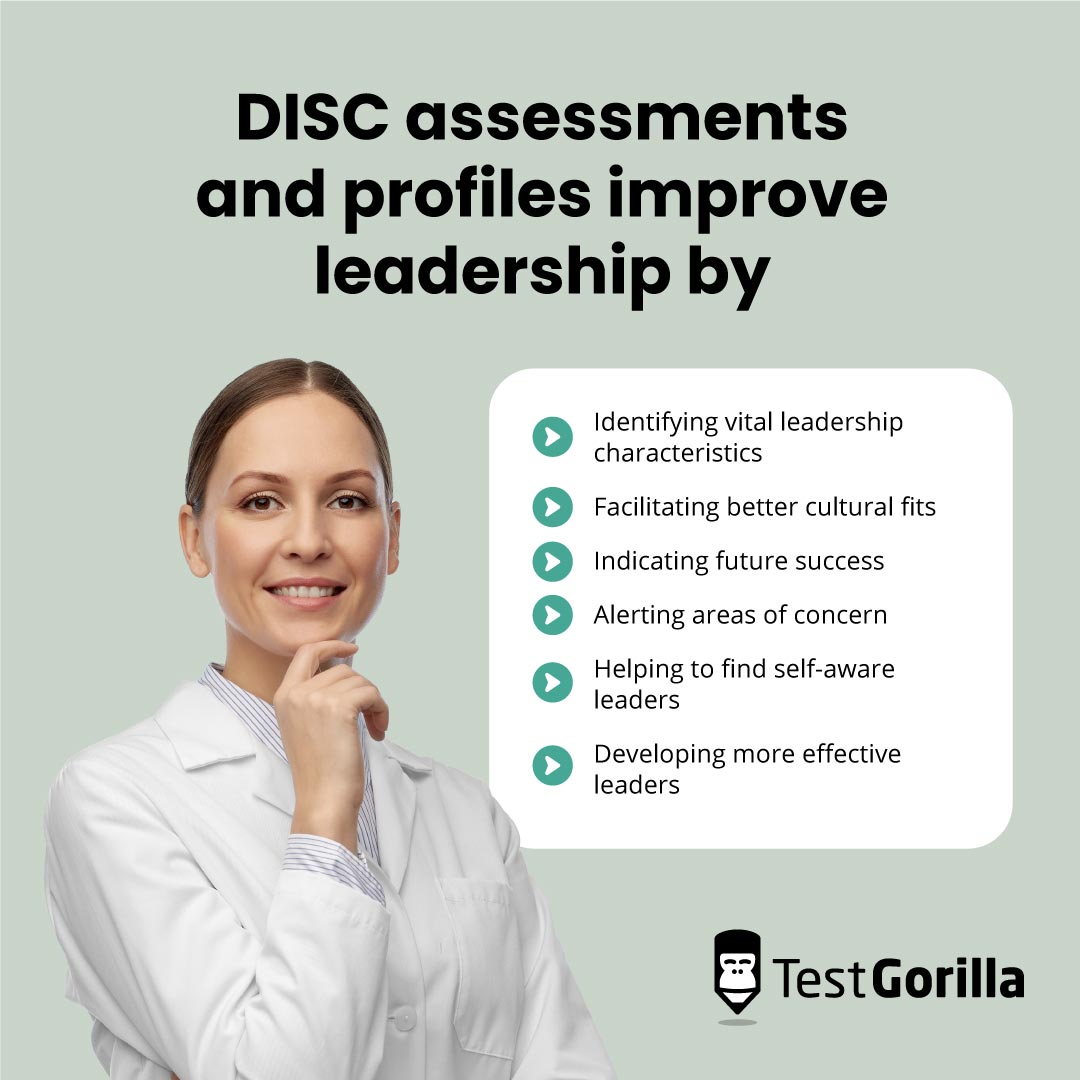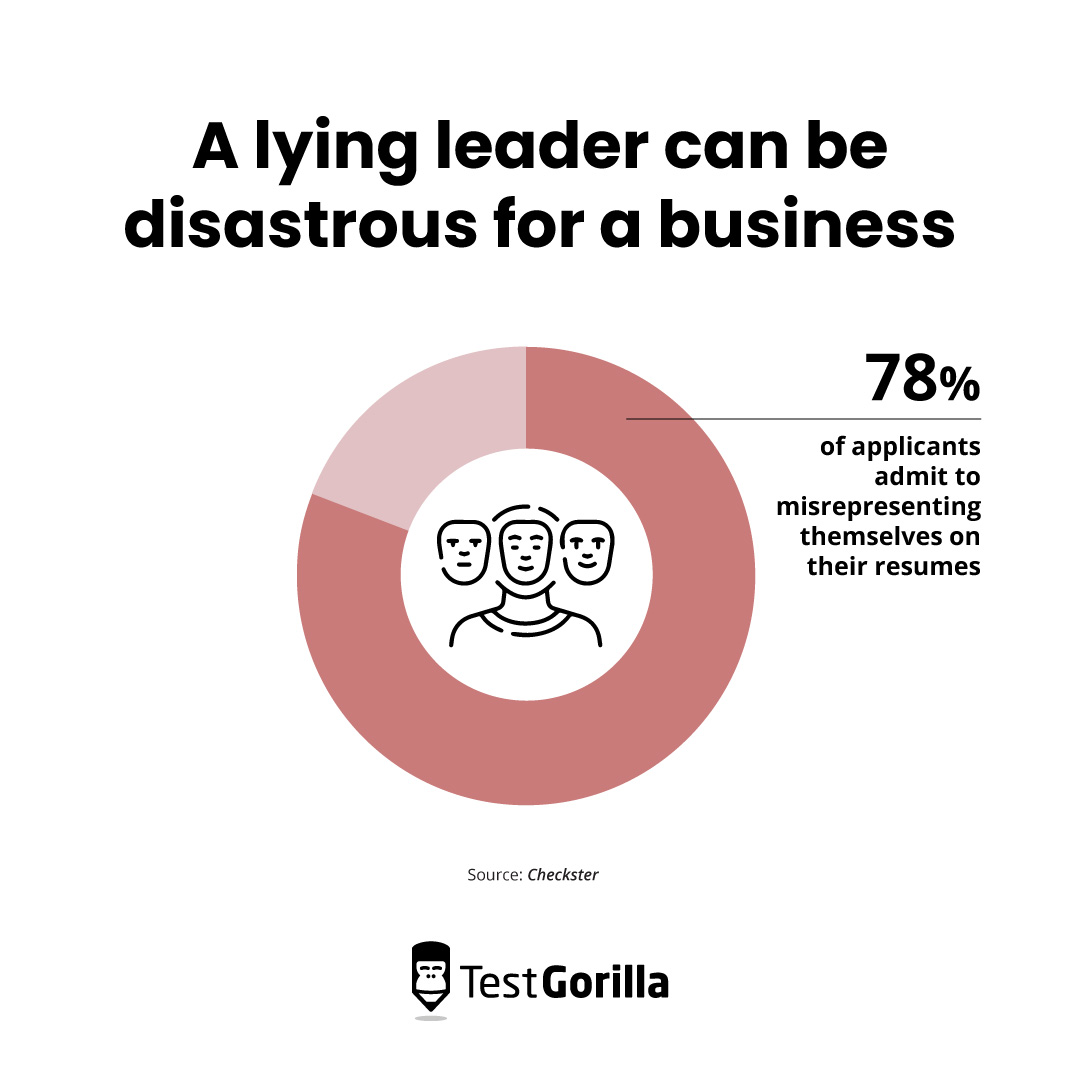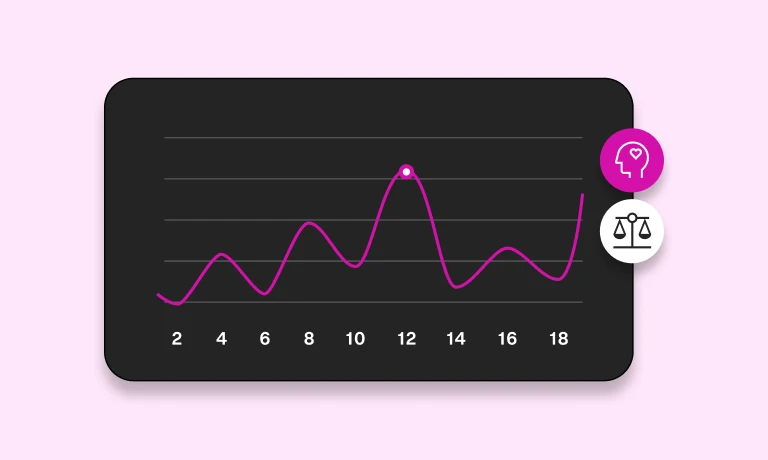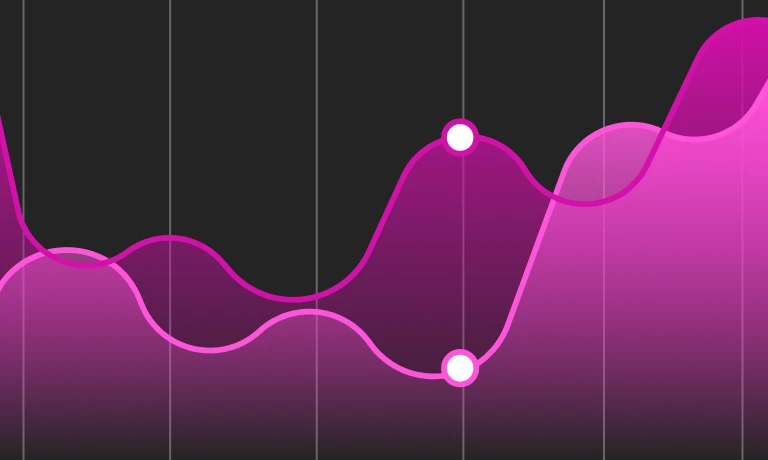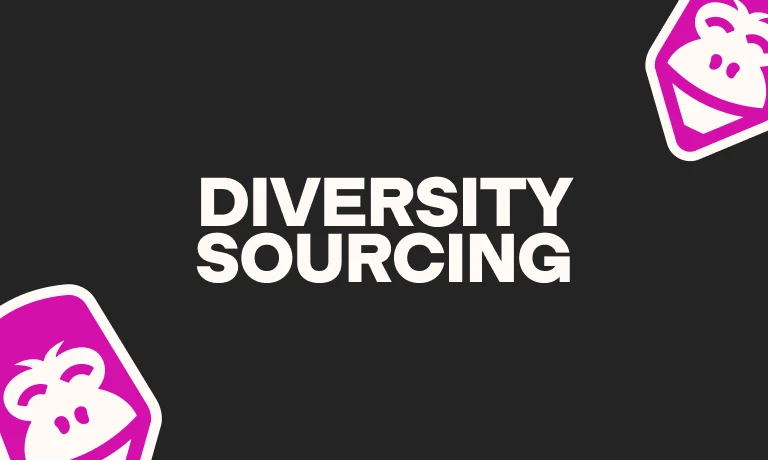Effective leadership is fundamental to the success of all organizations. Having a strong leader or appointing a new one can create positive change throughout your entire company. But relying only on resumes in the initial stages provides little insight into your applicants’ personal qualities.
When filling such a pivotal position, why risk leaving it to the interview to discover your candidate lacks the characteristics of a good leader?
Conducting DISC assessments can help you identify and hire leaders that will lead your organization to success. You can also use the DISC model to create stronger leadership pipelines and develop existing leaders.
In this article, we explore DISC assessments and how you can use them to improve leadership.
What is a DISC leadership assessment?
A DISC assessment is a type of personality test that gives insights into people’s behavioral styles. It’s based on the DISC model of human behavior developed by psychologist, philosopher, and women’s rights advocate William Marston in the 1920s.
DISC assessments are based on four personality profiles: dominance (D), influence (i), steadiness (S), and conscientiousness (C).
People who take a DISC assessment express their level of agreement with a series of statements.
Test results show that someone fits a single personality style or that they have traits of two. For example, an individual might have a High Dominant style or a Steady/Conscientious style.
Here’s a brief summary of the main DISC profiles:
Dominance (D): People with high D scores are often seen as confident, results-oriented, and ambitious. They tend to be decisive and take charge easily.
Influence (I): Those who score high in this area prioritize relationships. They’re usually outgoing, optimistic, and persuasive.
Steadiness (S): Those with high S scores tend to be dependable, sincere, and reliable. They like working in teams and value co-operation.
Conscientiousness (C): People who score high in this area focus on accuracy and quality of work. They’re detail-oriented, organized, and methodical.
How DISC assessments improve leadership
Leaders today have a more complex role than leaders just decades ago. Back then, leaders were typically autocratic, meaning they would hand out instructions for employees to follow and spearhead all decision-making processes.
Modern leadership is more multifaceted. It’s about guiding and supporting employees to achieve desired outcomes and involving them in decisions. It’s a two-way relationship that needs to be cultivated. Today, leaders must have certain personality traits, like sincerity and reliability, to foster and maintain strong relationships with their employees.
DISC leadership assessments provide insights into people’s personalities that can help you hire and develop better leaders for your business.
These assessments also make leaders more aware of their strengths and weaknesses, helping them build on their skills and manage their limitations more effectively.
1. DISC assessments can identify vital leadership characteristics
The best leaders are people experts who can motivate, rally, and inspire others. While it’s possible to develop these skills, some people have a natural aptitude for it.
Conducting a DISC assessment can show whether a candidate has the personality traits and behavioral characteristics needed to be a good leader.
TestGorilla’s DISC assessment results, for example, provide data that can help you judge an individual’s ability to lead and influence.
With TestGorilla, you can quickly and easily learn every applicant’s:
Best attributes
Main challenges
Motivations
Interpersonal style
Approach to decision-making
Approach to problem-solving
Response to conflict
2. Evaluating DISC profiles can facilitate better cultural fits
Having leaders who support your organization’s values and work culture is vital for short and long-term success.
A new leader who doesn’t fit your company’s culture is unlikely to foster a positive and cohesive work environment. A team headed by a leader like this can quickly lose their motivation.
In this situation, you might need to start the hiring process all over. But in extreme cases, hiring the wrong leader can cause other employees to leave.
Assessing someone’s DISC profile can help ensure favorable outcomes by preventing value and culture clashes from occurring in the first place. DISC assessments are ideal for evaluating leadership candidates’ compatibility with your team and your organization.
When you assess your leadership candidates with a DISC assessment, you get many insights into their values and their attitudes toward work.
Traits that are particularly relevant to determining whether your candidates are likely to fit into your company’s culture include:
Their work behavior style
How they communicate
Their ability to support others
How they are as a team member
How they criticize
How they respond to criticism
3. DISC test results can indicate future success
When selecting leaders, it’s important to base your hiring decisions on their potential impact on your organization rather than on past achievements, as this isn’t always the best predictor of success.
Understanding a person’s behavioral traits can be a good indication of how they’ll handle situations in the future. DISC leadership assessments give you the insights needed to do exactly that.
For example, two people could appear to be equally capable candidates on paper, but in real life, they respond to conflict very differently. Unless you dig deeper, you might not know that the person you selected is unable to handle conflict until it’s too late.
4. DISC leadership assessments can alert areas of concern
Did you know that 78% of applicants admit to misrepresenting themselves on their resumes? Employees who lie about their experience and skills already pose a big risk, and a lying leader can be disastrous for a business.
Employees quickly lose respect for leaders that seem dishonest. When enough team members lose trust in their leader, the entire team can fall apart. Another danger is that an untrustworthy leader might initiate a culture of deception.
Most people applying for leadership positions will tell you that they can lead and inspire, but a DISC assessment will confirm it.
Each statement is designed to reveal inherent personality traits and behavioral tendencies. This makes it difficult to manipulate to get a particular outcome. The fact that there are no right or wrong answers also encourages candidates to answer honestly.
Plus, there’s no pressure of someone looking over their shoulder, as candidates can complete DISC assessments in the privacy of their homes.
5. DISC profiles help you find self-aware leaders
Self-awareness is the ultimate trait of a good leader. People who are self-aware have a good understanding of their personality traits and behaviors. They’re also aware of how their actions and the way they communicate can impact those around them.
You can use a DISC assessment to gauge leadership candidates’ levels of self-awareness. Once you’ve conducted the test, compare the results with what candidates have told you about themselves. If they’re similar, it’s a good indication that they’re self-aware.
On the other hand, a candidate who tells you that they’re an empathic and supportive leader but whose DISC profile says otherwise isn’t very self-aware.
6. DISC profiles can develop more effective leaders
Developing robust leadership pipelines is one of the best ways to ensure long-term leadership success. A leadership pipeline is a framework for identifying and developing future leaders.
Implementing DISC assessments in your leadership pipeline can help you identify an organization’s most promising future leaders. You can then use DISC leadership assessments and profiles to inform the leadership training you provide.
The detailed insights you get from DISC assessments can help you develop leadership coaching tailored to employees’ individual personalities.
Implementing DISC assessments also creates an opportunity for your business to focus on developing leaders with specific traits. For example, a company may want to focus on developing leaders who are more creative or emotionally intelligent.
The best insights on HR and recruitment, delivered to your inbox.
Biweekly updates. No spam. Unsubscribe any time.
Use TestGorilla to roll out a DISC assessment
TestGorilla’s DISC Personality test gives you a holistic view of applicants in the early stages of the hiring process.
It contains 48 statements that applicants score from 1 (“very inaccurate”) to 5 (“very accurate”). The test takes just 10 minutes to complete, and candidates can take it on their mobile devices.
Test results are precise and objective. In addition to a general description of each candidate, you’ll get specific insights into their character, such as how they behave at work. Results also give you information about communicating effectively with each personality type and questions you might ask them during interviews.
Our DISC Personality test can help you figure out who will work well with your team and be successful in the role you’re hiring for. This way, you can choose the perfect candidate for your business.
Using this test as part of your pre-employment screening process will also help you eliminate unconscious bias during hiring and reduce your time-to-hire.
Conclusion
When you’re hiring for leadership roles, the stakes are raised, but there doesn’t have to be a battle ahead.
A DISC assessment is a powerful tool that can reduce the chances of mis-hires and help you identify, recruit, and develop leaders who will bring out the best in their teams.
Effective leadership demands a whole host of skills. We always recommend combining our DISC Personality test with skills tests to create a comprehensive assessment that gives you a rounded picture of all applicants.
Sign up for a free 30-minute demo to see what our tests are all about.
Related posts
You've scrolled this far
Why not try TestGorilla for free, and see what happens when you put skills first.


